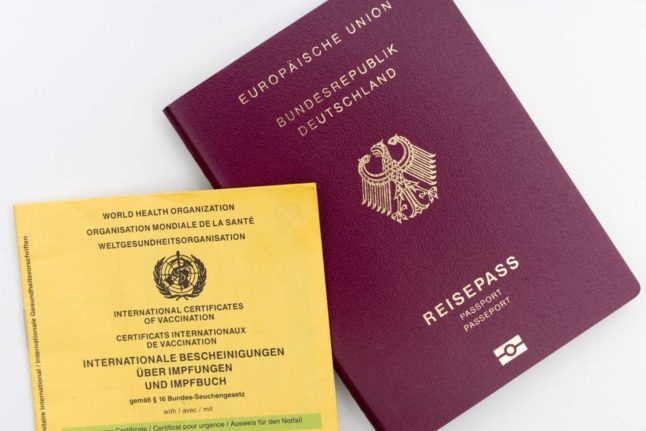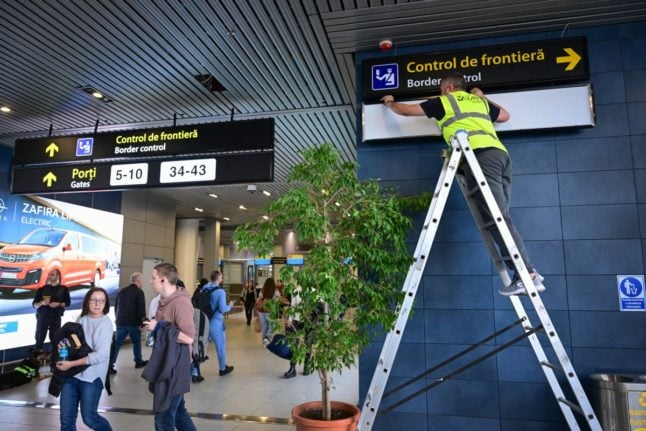This report was last updated on November 9th.
Before the pandemic struck and travel restrictions were implemented, it was easy for tourists to enter Switzerland.
In most cases, a valid passport was sufficient.
Now, more documents – including proof of vaccination or recovery from the virus or a negative test – are often required.
In late June, Switzerland changed its entry rules. Previously those from inside the Schengen zone and outside were treated differently.
From June 26th onwards, Switzerland introduced the ‘variant of concern’ classification for countries where mutations of the virus were spreading. The current list of variant of concern countries includes India, the United Kingdom and Nepal.
This is laid out below.
Entry from the Schengen zone and EFTA countries
People arriving from Schengen and EU countries or from the small European states like Andorra, the Vatican, Monaco and San Marino will need to either be vaccinated, recently recovered from Covid or have a negative test in order to enter.
In addition, you will also need to fill out the entry form.
The date of full vaccination must be in the past 12 months. For those recovered from the virus, you must have had the virus in the previous six months (and received a confirmation, i.e. a positive test).
If you have not been vaccinated or recovered from the virus, you will need to present a negative PCR test (not older than 72 hours) or a negative rapid antigen test (not older than 48 hours) before boarding your flight to Switzerland.
What about outside the EU/Schengen/EFTA zone?
On June 26th, Switzerland’s rules were relaxed to allow entry from outside the bloc.
This means that people can enter from non-Schengen zone countries, provided they have been vaccinated in the past 12 months or have recovered from the virus in the past six months.
This includes the United States, the United Kingdom and other non-Schengen countries which are not on the ‘variant of concern’ list.
Entry from outside the bloc is not permitted for people who have neither been vaccinated or recovered from the virus.
More information is at the following link.
UPDATE: Switzerland confirms only vaccinated Americans and Brits can enter
What documents are needed?
Before boarding the plane, an electronic entry form must be filled out. Once you complete it online and send it back, you will receive a personalised QR code as proof of registration.
You will be asked to show this code at the airport check-in, at all transit airports, and at arrival in Switzerland.
READ MORE: Here is the form you need to enter Switzerland
Only vaccinated and recovered tourists from outside the Schengen zone can come to Switzerland and remain here without further requirements.
You must be inoculated with your second dose at least two weeks previously with one of the vaccines approved by the European Union, Swissmedic and WHO, which currently are Moderna, Pfizer / Biontech, AstraZeneca, and Johnson & Johnson, along with the two Chinese vaccines Sinopharm and Sinovac.
Also, you must have proof showing you have been fully vaccinated — an official document issued by a recognised health authority.
It can be either in digital or in paper form, must have your full name and date of birth, dates when both doses were administered (or a single dose in case of a Johnson & Johnson vaccine), as well as the name and batch number of the vaccine.
This does not need to be the internationally known yellow vaccine booklet or a QR code, although if the documentation is in a form that people recognise, it’s likely to go a little more smoothly.
One thing to keep in mind is that travel should take place at least 14 days after the final dose, which is when immunity to coronavirus is believed to fully kick in.
What about tourists who arrive to Switzerland after holidaying in other European countries?
It doesn’t matter whether a person transits through or stays in another country before arriving in Switzerland.
The same rules — that is, either the vaccination / immunity certificate or negative test or quarantine apply, even if the traveller arrives from a high-variant area like the UK.
These are the rules and regulations right now, bit they may change if the epidemiological situation in Switzerland and / or the US worsens.
UPDATE: Switzerland confirms vaccinated Americans and Brits can enter from June 26th



 Please whitelist us to continue reading.
Please whitelist us to continue reading.
Interesting thank you. As I understand the situation at the moment it is easier for somebody travelling from the US than it is from Britain, even when transiting other countries. I’m trying to find out the requirements to and from England via France (driving in a car) starting out of Switzerland when all parties involved are double vaccinated. It seems that various forms and above all recent Covid tests are required in both directions at the UK/French borders (Channel Tunnel). I was reading up on this yesterday (06/07/2021) – does anybody know if this is this still the situation or has it / will it change soon? Thanks in advance.
Hi there, what about kids ? I know kids under 16 are exempt from testing when returning to Switzerland, but what about quarantine ? My 13 & 14 yo have only had vaccination and my 7yo nothing of course…are they exempt from the quarantine ? Thanks.
This appears to be missing the rule effective September 13, 2021 that you must have a Covid Pass. The pass is 30 francs to obtain for foreigners but must obtained as proof of vaccination.